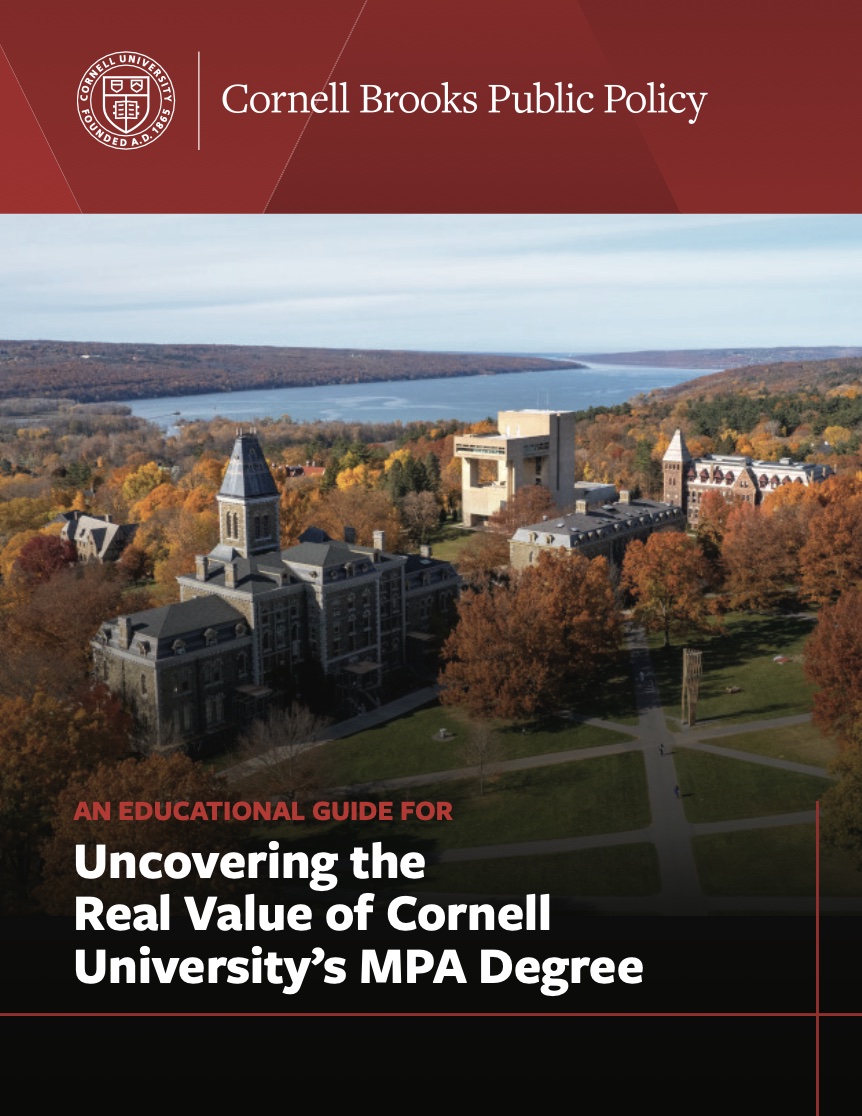MPA vs. MPP vs. MBA
While there are several professional degree options that can enhance your knowledge, skills, and abilities and allow you to make a valuable contribution to the world, it is important to distinguish between these degrees and the opportunities they will lead to.
The Network of Schools of Public Policy, Affairs, and Administration (NASPAA) is the professional organization that oversees education in the field of public affairs, public policy, and public administration. NASPAA defines a Master of Public Administration as “the core professional degree for a management career in public service. The curriculum is designed to aid students in developing the skills and techniques used by leaders and managers to implement policies, projects, and programs that resolve important societal problems.
NASPAA also notes that graduates of an MPA program “work in all levels of government (federal, state, and local), in nonprofits, in international organizations, consulting firms, and in the private sector.”
So, how does the MPA differ from a Master of Public Policy (MPP) or a Master of Business Administration (MBA) degree? Let’s dive a little deeper.
Master of Public Administration (MPA) vs. Master of Public Policy (MPP)
A Master of Public Policy (MPP) degree focuses on analysis. MPP students use the tools of economic analysis to forecast the consequences of public policy. MPP graduates typically assume roles as analysts in the public or private sectors. The MPA, on the other hand, is a general management degree that builds leadership, planning, management, and evaluation skills.
Master of Public Administration (MPA) vs. Master of Business Administration (MBA)
An MPA is often referred to as a “Master of Business Administration/MBA for the Public and Nonprofit Sectors.” While this is the case in many respects, the two degrees are not interchangeable. Both the MPA and MBA degrees are interdisciplinary, merging perspectives from management, economics, and organizational behavior.
The MPA degree provides insight into the intricacies of how these disciplines apply in the context of public service, however, whereas the MBA is focused on profit-driven results.
Those who pursue an MPA pursue management roles in the public interest, where the standards of accountability, transparency, and equity demand a unique mix of knowledge, skills and abilities. Those pursuing an MPA do so after careful introspection, and upon determining that their goals, values, and focus lie in improving people’s lives.
The MPA allows graduates to accelerate the “business of public affairs” and unravel challenges in federal, state, or local government; nonprofit organizations, and in international public organizations.
















